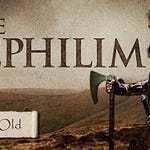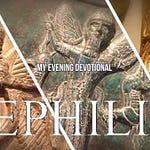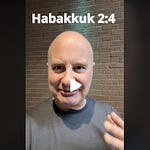Leviticus 10:1–2 Now Nadab and Abihu, the sons of Aaron, each took his censer and put fire in it and laid incense on it and offered unauthorized fire before the LORD, which he had not commanded them. And fire came out from before the LORD and consumed them, and they died before the LORD.
Nadab and Abihu were the oldest and second oldest sons of Aaron, the brother of Moses and first high priest of Israel.
Nadab and Abihu are known for offering “unauthorized fire” (or “strange fire,” KJV) before the Lord in the tabernacle and dying as a result. Those who served as priests before the Lord were required to serve Him honorably. If they did not, the consequence was death.
The reason for the sudden death of Nadab and Abihu remains one of the Torah's most perplexing mysteries.
These Bible verses suggest many possible inferences. The brothers each laid incense on a burning pan, which they offered as "alien fire" that God had not commanded of them. As a consequence, fire came forth from the Lord and consumed them (Lev. 10:2)
Strange fire
Their unauthorized fire was met with an unquenchable one. God killed them on the spot in dramatic fashion. What exactly was this strange fire? Did they use the wrong incense? Did they come at the wrong time? Did they enter the Holy of Holies? Were they drunk (Lev. 10:9)? Did they offer incense to a false god?
Exodus 30:9 You shall not offer unauthorized incense on it, or a burnt offering, or a grain offering, and you shall not pour a drink offering on it.
A subsequent Bible verse states, The Lord spoke to Moses after the death of the two sons of Aaron who died when they drew too close to the presence of the Lord (Lev. 16:1). This verse reiterates what happened to Nadab and Abihu, but adds when they drew too close to the presence of the Lord.
How We Worship Matters
Nadab and Abihu went rogue and did what “he had not commanded them.”
Are we offering “strange fire” as worship?
Given the lack of a clear reason for the death of Nadab and Abihu, ancient rabbis and medieval commentators came to suggest other reasons for the severe fate of these two, Milgrom notes, including "drunkenness, celibacy, arrogant impatience for Moses and Aaron to die, or neglect of their sacred obligations.
John 4:24 God is Spirit, and those who worship Him must worship in spirit and truth.
God will not be glorified before the people unless His servants submit to His commands.
The coals that Nadab and Abihu used came from a source that was ‘profane.’” It was not normative. Profane there doesn’t mean something like swearing. It means ritually disqualified, ritually impure.
This story of the death of Nadab and Abihu falls into a set of unusual stories in the Bible
While God does not consume rebellious people by causing fire to fall from heaven today (He did in the past and He will in the future), it should be clearly noted that He never takes lightly someone trying to replace His work with their own.
Repentance involves recognizing that you have thought wrongly in the past and determining to think rightly in the future. The full biblical definition of repentance is a change of mind that results in a change of action.
"Unless you repent, you will all perish!" (Luke 13:3)
2 Corinthians 7:10 For godly grief produces a repentance that leads to salvation without regret, whereas worldly grief produces death.














Share this post